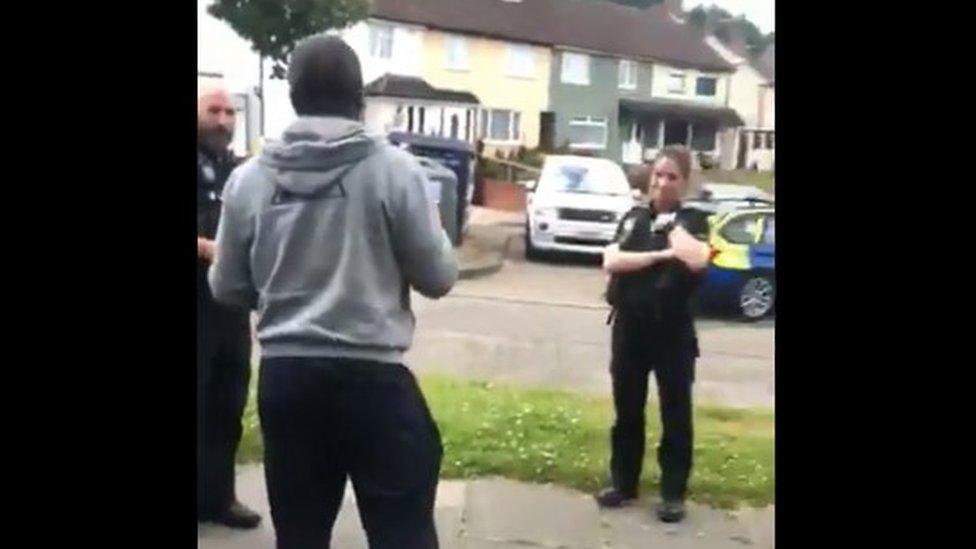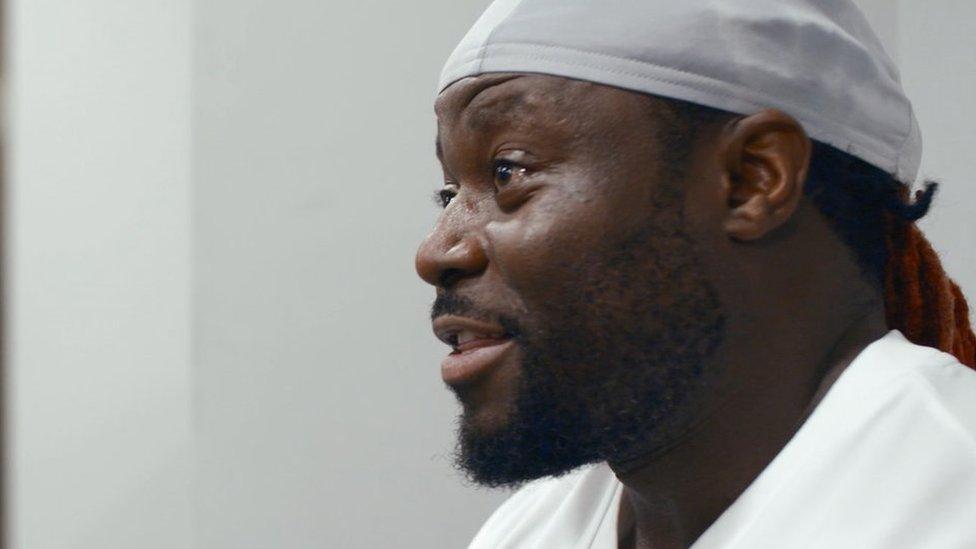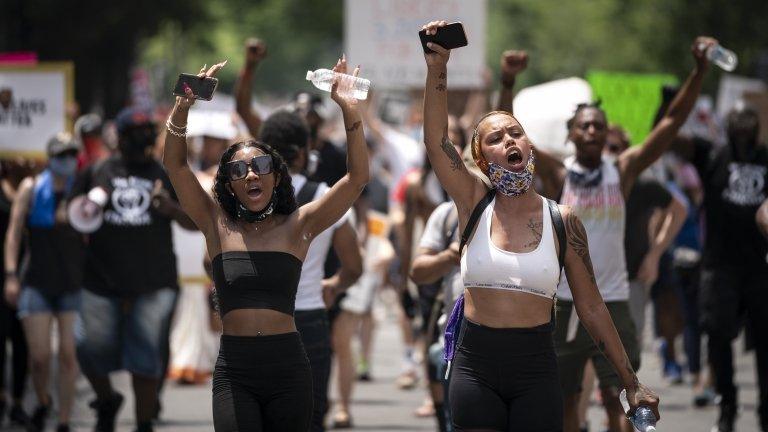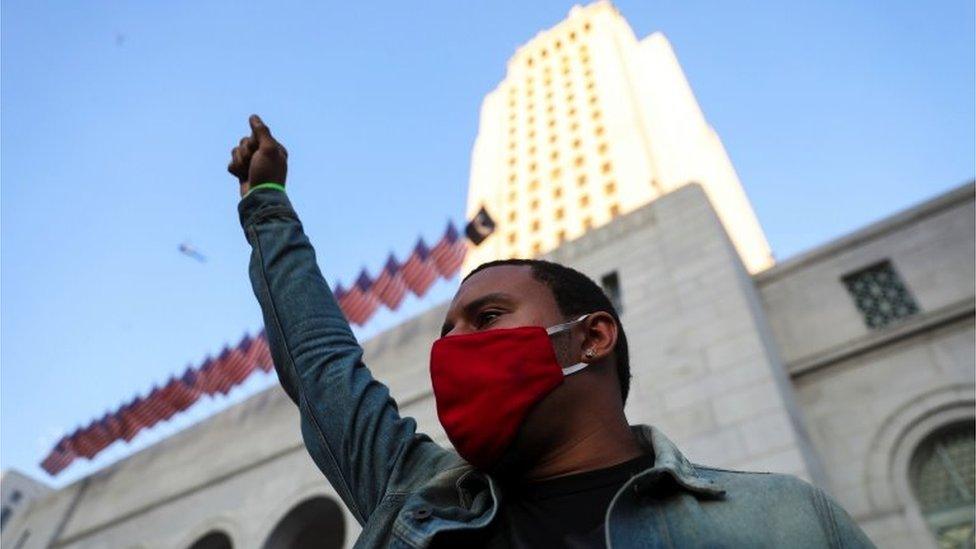Ipswich police quizzing of black couple 'not racial profiling'
- Published
Suffolk Police officers ask for the black couple's details "because we can"
Two officers who asked a black man for his details "because we can" could have acted "more professionally", the police watchdog has concluded.
In a widely shared exchange, police spoke to Falil Onikoyi and his wife Ingrid in Ipswich, Suffolk, on 9 June.
An officer then accused her of "jumping on the bandwagon" when she protested.
The Independent Office for Police Conduct (IOPC) said it found no case to answer for misconduct after a complaint of harassment and racial profiling.
It described the officers' actions as "appropriate and proportionate".
However, out of 10 issues raised by Mr Onikoyi, it found there were two occasions in which the Suffolk Police officers could have acted more professionally and de-escalated the situation.
Mr Onikoyi was asked for identification and proof of address after he had stepped out of his car in a driveway.
'Not based on racial profiling'
Prior to the incident, the IOPC said another officer observing a property nearby, on a separate policing matter, had seen the couple's car drive past twice and requested officers find out who they were.
"In light of that evidence we found the officers' actions in approaching the couple to exclude the man's vehicle from their enquiries were objective and not based on racial profiling or discrimination," the IOPC said.
"It was unfortunate that for operational reasons the officers could not provide the couple with a full explanation as to why they were stopped."
Neither of the couple were searched or arrested.
Black man stopped by Ipswich police says view of equality 'shattered'
Ingrid Antoine-Onikoyi's mobile phone footage of the encounter was viewed on Twitter more than two million times and coincided with a summer of Black Lives Matter protests.
In an interview with the BBC at the time, she said she was scared for her husband during the "distressing" incident.
"When you see so many things in the media and you see your husband being treated this way, never been in trouble, it makes you nervous and really anxious," she added.
IOPC regional director Graham Beesley said: "This incident raised concerns about public confidence in policing and not least from Black, Asian and minority ethnic communities.
"We found that the actions of the officers were appropriate and proportionate, followed approved police policies and that the officers did not treat the man and his wife differently because of their race.
"Nevertheless, we found that there was room for improvement in some of the officers' interactions with the couple who were entirely justified in querying why they were being stopped."
Related topics
- Published12 June 2020

- Published11 June 2020

- Published11 June 2020

- Published6 June 2020

- Published5 June 2020
